|
The ancient Greeks invented theatre. Drama was very therapeutic and cathartic to watch mainly because it allowed the spectators to "see themself";
Today I will do a test with you to see, which of these 3 dramatic characters are you most like. See these 3 movie clips to determine which of these 3 types you are... 1) " I couldn't be who I really was...my life is a lie" 2) "Poor me, my grand plans didn't work out the way I envisaged. 3) "I've never been interesting or worthy of love... This will give you an opportunity to reflect on your compulsive behaviour objectively.
3 Comments
How To Flourish Into A Good Person-Not Bitter-Toxic ?PLUTARCH, Greek Philosopher taught that...28/5/2020
How can we flourish into a good person; Not Bitter-Toxic...?
PLUTARCH, one of the greatest Greek philosophers of antiquity, who was also a high priest in the temple of Apollo had alot to say on this topic: He wrote various meaningful books on esoteric truths. One of his major works is the Parallel Lives of famous ancient people from Greece and Rome. By selecting couples of a Greek and a Roman he compared their lives and gave us an amazing example on how we can become more successful and better people by studying the lives of important people, leaders or not that can make a change in their society and country. He gives us an example on how we can study those lives of people who inspire us in this life so we can have them as guides to live a better life. A valuable guide in our modern society. The part 2 of the second episode of the series explains us how we can protect ourselves from becoming a bad character. A modern life coaching approach of an old wisdom of the great philosopher: Plutarch.
RELAXING GUIDED MEDITATION: Allow Your Higher Wisdom & Power To Take Charge when you need help.21/5/2020
(From recent Live Streaming Event)
Your higher self is the real you, the soul consciousness that is so, so much more than the physical form you know so well. Socrates called the higher self, "Daemonion". He claimed that he was given guidance for all his life, and encouraged his students to do the same. Your higher self is the you that is unlimited and eternal. It’s the part of you that excites you with inspiration, guides you with intuition and teaches you through insight. Your intentions, desires and your secrets are well-known to your higher self. Have you ever been in a moment where everything felt just right? Maybe you were guided to a new job, or set out to do something and it all came together, seamlessly. That all-is-well feeling is you being connected to your Higher Self and allowing it to guide you. This guided meditation will help you to connect easier.
The Mission of the Hellenic Wellness Movement® is to create an eclectic program of live and online events for the public to experience the unique Hellenic approach to wellness that includes these four main categories:
1. Greek Philosophy From Socrates to Modern Stoicism 2. Hippocratic Medicine & Mediterranean Med Diet 3. Hellenic Athletics Marathons, Calisthenics, Greco-Roman Wrestling, Triathlons 4. Classical Music From ancient Greek lyra (harp) to today's classical music scene.
I founded this movement just alittle before my 52nd birthday (May 22 !) and it is the
result of my 'life's work'. I hope you join the movement and support my efforts. Here's how: 1. Become a Patron of these videos. 2. Share these videos on social media as often as possible. 3. Form a strategic alliance with this movement. I look forward to our collaboration. Sincerely, Alkistis
Loving yourself is magical. Self-love is a powerful force that will positively affect every single aspect of your life. You need to stop giving in to your inner-critic; no more listening to that voice telling you that you’re not good enough; no more settling for less than you deserve.
Self-love empowers you to make healthy decisions that serve you in the highest good. Join me in a small reminder of gratitude and self-love. Let's take some time to connect with our inner being. We spend most of our lives basing our worth on our titles, roles and achievements. We identify with our successes and failures, relationship status, job title, bank balance and titles as if they tell the complete story of who we are.
WANT LEGENDARY SUCCESS ? Tony Robbins learned this from Plutarch, Ancient Greek philosopher17/5/2020
Today I share about a key factor in becoming as successful as the people you most admire in business or in personal life. A "lifehack" that Plutarch taught thousands of years ago, before Tony Robbins, who teaches the same point today.
This "life-hack" is all about modeling successful habits of the people you most admire.
L. Mestrius Plutarchus, better known simply as Plutarch, was a Greek writer and philosopher who lived between c. 45-50 CE and c. 120-125 CE. A prodigious and hugely influential writer, he is now most famous for his biographical works in his book, 'Parallel Lives' which present an entertaining history of some of the most significant figures from antiquity. He was the first ever in history to write in such detail about the early influences on the formation of character and habits of legends like Pericles, Alexander the Great and Julius Cesar. Plutarch was not so interested in a detailed chronological account of the subject's life but, rather, he sought to pick out their essential good and bad qualities and present a portrait from a moral perspective. As translator Ian Scott-Kilvert eloquently puts it, "Plutarch has an unerring sense of the drama of men in great situations. His eye ranges over a wider field of human action than any of the classical historians. He surveys men's conduct in war, in council, in love, in the use of money...in religion, in the family, and he judges as a man of wide tolerance and ripe experience. " He taught a system for training the youth in school about the positive habits and the 'ego-traps' of these great leaders, so that they could model the positive behaviors and avoid the negative ones. Plutarch passed on his experience of high politics in his "Rules for Politicians", a treatise giving advice for young aspiring public servants. From middle age, Plutarch was a high priest at the Temple of Apollo at the sacred site of Delphi. Below is a selection of extracts from Plutarch's work. On Themistocles: "He was also greatly admired for the example he made of the interpreter, who arrived with the envoys from the Persian king to demand earth and water in token of submission. He had this interpreter arrested and put to death by a special decree of the people, because he had dared to make use of the Greek language to transmit the commands of a barbarian. (The Rise & Fall of Athens, 83) On Pericles: His physical features were almost perfect, the only exception being his head, which was rather long and out of proportion. For this reason almost all his portraits show him wearing a helmet, since the artists apparently did not wish to taunt him with this deformity. (The Rise & Fall of Athens, 167) On Alcibiades: The fact was that his voluntary donations, the public shows he supported, his unrivalled munificence to the state, the fame of his ancestry, the power of his oratory and his physical strength and beauty, together with his experience and prowess in war, all combined to make the Athenians forgive him everything else, and they were constantly finding euphemisms for his lapses. (The Rise & Fall of Athens, 259) On Alexander the Great: Alexander went in person to see him [Diogenes] and found him basking at full length in the sun. When he saw so many people approaching him, Diogenes raised himself a little on his elbow and fixed his gaze upon Alexander. The king greeted him and inquired whether he could do anything for him. 'Yes', replied the philosopher, 'you can stand a little to one side out of my sun.' Alexander is said to have been greatly impressed by this answer and full of admiration for the hauteur and independence of mind of a man who could look down on him with such condescension. So much so that he remarked to his followers, who were laughing and mocking the philosopher as they went away, 'You may say what you like, but if I were not Alexander, I would be Diogenes.' (The Age of Alexander, 266) On Pyrrhus: The general opinion of him was that for warlike experience, daring and personal valour, he had no equal among the kings of his time; but what he won through the feats of his arms he lost by indulging in vain hopes, and through his obsessive desire to seize what lay beyond his grasp, he constantly failed to secure what lay within it. For this reason Antigonus compared him to a player at dice, who makes many good throws, but does not understand how to exploit them when they are made.' (The Age of Alexander, 414-415) 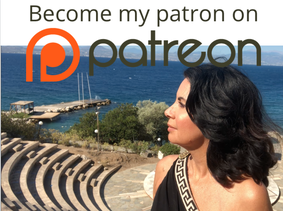
Whose biography has influenced YOU most?
Share in the comments &... If you'd like to help support this channel, please consider donating to my PATREON page here: https://www.patreon.com/alkistis
Today, I share a short journey into Springtime in Greece: Follow me into the seacave,
we go swimming, we enjoy the colorful flowers, we marvel at the beauty all around. (Part of my PERSONAL VLOG: "Life In Greece" series) 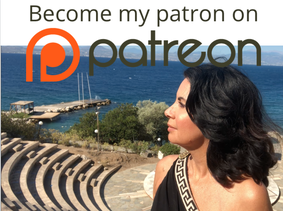
Enjoy my video and write me your comments.
What types of videos do you like me to create and why? As always, support my work on www.patreon.com/alkistis and you will receive many gifts..
Today I share with you a story about my favourite item: A red velvet chair, and open up the discussion about how we take care of our things. I offer you a simple 3-step system for deciding what you are going to do with your "stuff", (keep, give away?) based on Aristotle's concepts of Ethos, Pathos, Logos.
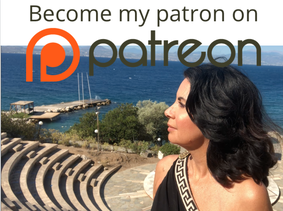
Thank you for listening and make sure you write your comments and give me feedback for improvement. And of course, to support the constant improvement of my work, to pay my technicians, go to www.patreon.com/alkistis
Today I discuss how we tell many 'lies' or 'half-truths' to ourself. These are self-sabotaging even toxic thoughts that we repeat to ourself very often, and we do this unconsciously too ! We do a mental exercise together with the whole group (on Zoom) to learn more about 'The Greek Way' of working on ourself, of improving ourself and our habits. 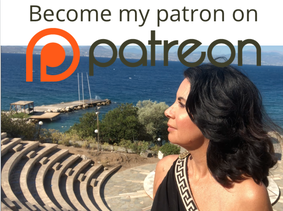 We do a mental exercise together with the whole group (on Zoom) to learn more about 'The Greek Way' of working on ourself, of improving ourself and our habits. The Greeks were the first to de-mystify our thinking processes. They were the first to approach human psychological problems, through a 'scientific' , objective, logical approach. "While philosophy was an established pursuit prior to Socrates, (for example, to study natural phenomena like thunder and earthquakes) Cicero credits him as "the first who brought philosophy down from the heavens, placed it in cities, introduced it into families, and obliged it to examine into life and morals, and good and evil." Here is a small 'demonstration' of the Socratic approach in the video.The Socratic approach is conversational. It employs the dialogue not only as a didactic device, but as a technique for the actual discovery of opinions amongst people, there are truths upon which all people can agree, Socrates proceeds to unfold such truths by discussion or by question and answer. Mainly it focuses in unveiling the Truth, and to move away from 'lies', 'myths', 'fake news' and all forms of self-deceit. "The truth shall set you free", in other words.
Hope that helps! SHARE the post on social media and keep writing your comments and questions. I read every one of them, even if I can't always answer. Alkistis from Greece.
Today, I share with you some of my personal life; Scenes with my nieces singing in quarantine, singing to the plants, flying lessons plus...Surprise Ending...A big lesson in life.
How's your family life? Do you get along with eachother?
I'm always happy to learn about you! Sincerely, Alkistis |
TRY MY 3-STEP METHOD FOR YOURSELF THROUGH THIS FREE
VIDEO-COURSE: Archives
January 2025
Categories
All
|
|
All Rights Reserved 2019 Alkistis Agiorgiti
|

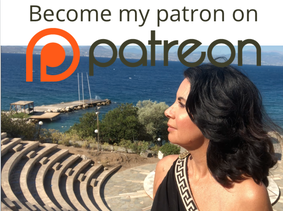
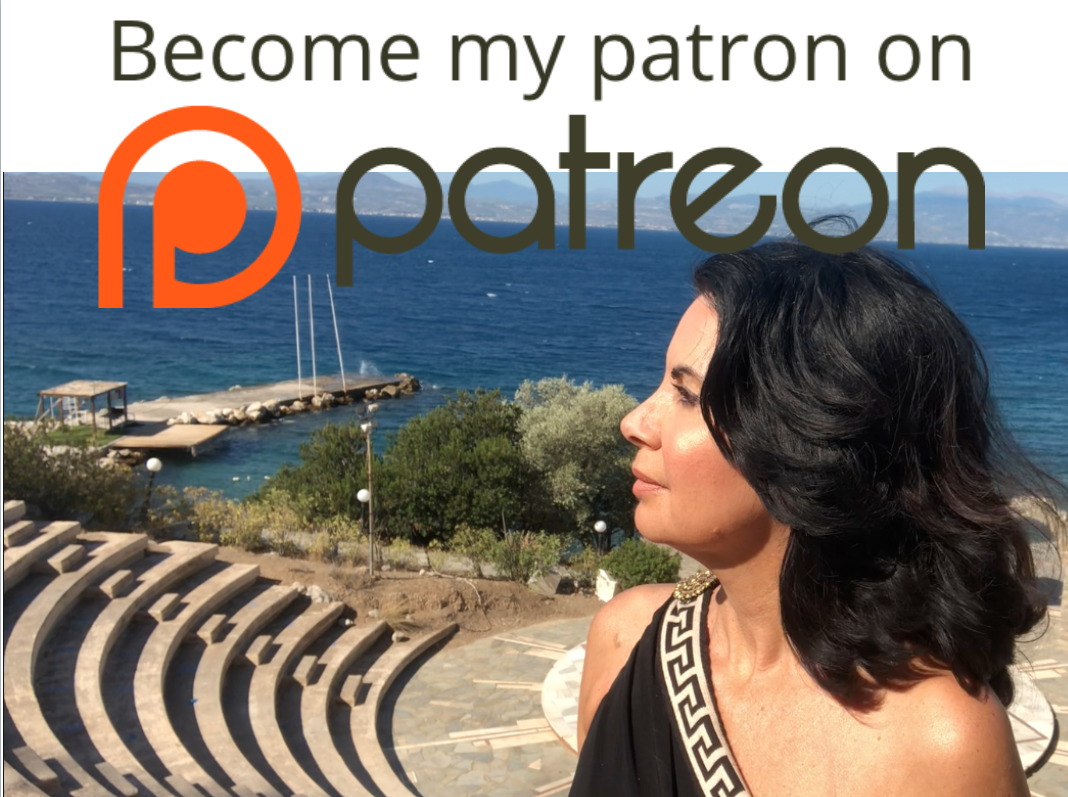
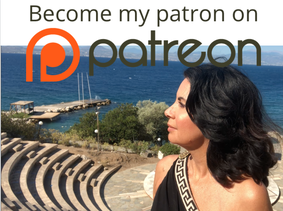
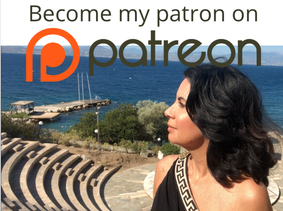
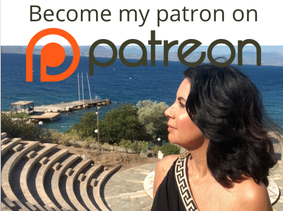

 RSS Feed
RSS Feed
